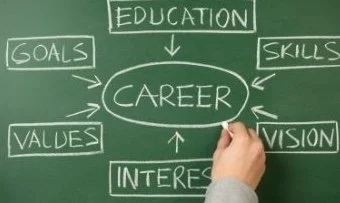Welcome to the third article of our 10th Anniversary Blog Series, written by another of CoachBright’s founding volunteer coaches, Janice Garman. It is a particularly timely piece, aptly titled The Power of Informal Education.
During a time when so many education stories in the news continue to focus on the ongoing effects of COVID-19, the cost-of-living crisis on our schools and rising school absences, precious little space is given to the positive work being delivered by alternative education service providers.
This article, written ten years ago, long before COVID-19, reminds us that alternative education provision has been around for longer than most might think. From homeschooling to online learning to tuition centres and coaching organisations, Janice shows us that traditional mainstream schooling isn't the only way to achieve academic excellence.
The Power of Informal Education
by Janice Garman
Education is a topic often spoken about in the media and the academic world. However, most often it is in a negative way, focusing only on students’ poor performances, behaviours, or grades within standardised tests and exams. What rarely gets the attention of mainstream discussions is informal education, in all its various forms.
Informal education refers to the learning that can occur outside of a formal classroom setting if given the opportunity. It is often driven by experiences and interactions with others.
Informal education is important because it is a continuum of learning which occurs in all kinds of spaces in one’s life. It is most often recognised in the civil society sector where a large amount of positive learning occurs. These learning spaces outside of the school environment are not given the due they deserve.
My opinion on this was largely shaped by my experience of volunteering with CoachBright. As a coach on one of their programmes, I discovered the true meaning and importance of education in a less formal setting and style. It’s a positive and encouraging environment which enables students to discover what they enjoy about certain subjects and how they might be useful for their futures. It’s also been shown to be a successful way of engaging students who have become discouraged by the formal system.
Students who took part in the programme at Walworth Academy have learned skills that are not necessarily taught within the classroom, but are vital for tertiary education as well as the workplace. Learning the skills of positive feedback, presentation skills, teamwork, positive competition and essay writing has been a fun experience for both students and coaches. We did this through informal exercises in an environment which did not demand right or wrong answers, a certain level of competence or confidence. Over the course of the programme, I saw how the students became much more confident in themselves, unafraid to raise their hands or voice their opinions.
The programme helps students reinvest a sense of purpose into their studies, by learning from young adults like me, who are just a bit older, who have also been through the formal school system and often been through similar stages of shyness, lack of confidence and lack of purpose in studying. This programme helped me to understand that there are many different ways to make learning fun and relevant.
Learning is a constant process and informal styles deserve a lot more attention. In saying this I would also like to reiterate that although the programme is for students from a disadvantaged background and geared towards academics, I also gained a tremendous amount from the programme by training as a coach. It is essentially an informal way to help students learn the skills already mentioned, but it is so much more than that. It is about building confidence, not just for the students but also for the coaches. Speaking from personal experience, I used to be a very shy and quiet person. Although I am no longer as quiet, the programme also helped me tremendously in planting the idea in my mind that I am capable of so much more than I previously thought. I can facilitate, guide and supervise, skills I never felt particularly confident in doing before this programme.
I highly recommend becoming a CoachBright coach because it’s a fun and stimulating way for students to engage with academics and a great example of how informal learning can be effective and impactful.

